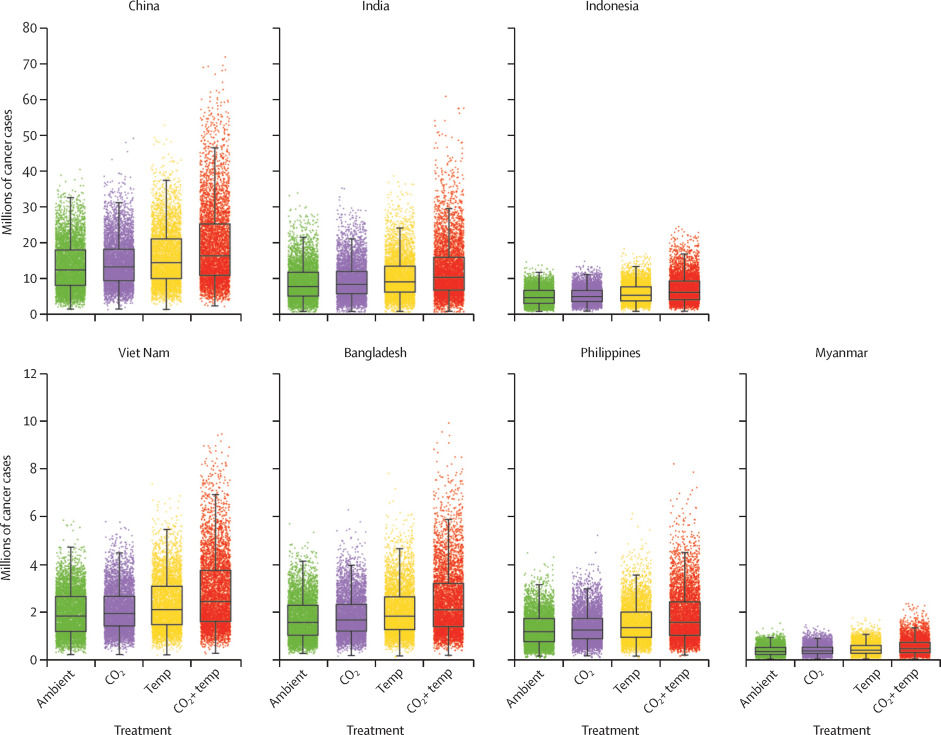
Background
Rising global atmospheric carbon dioxide (CO2) concentrations and surface temperatures could negatively affect rice yields and nutritional quality; however, their effects on arsenic accumulation in paddy rice have not been assessed concurrently. Prof. ZHU Chunwu and his research team aimed to assess the impact of increases in CO2 and temperature (individually and in combination) on arsenic concentrations in rice, characterise soil properties that might influence arsenic uptake, and model the associated risks of cancer and other health outcomes due to increased arsenic exposure.
Methods
For this modelling study they performed in-situ multi-varietal trials using Free-Air CO2 Enrichment platforms with and without supplemental temperature to examine the bioaccumulation of arsenic in paddy rice and the underlying biogeochemical mechanisms from 2014 to 2023. They modelled dietary inorganic arsenic exposure and the associated risks of cancer and non-cancer health outcomes via rice consumption for seven of the leading rice-consuming countries in east and southeast Asia.
Findings
Concomitant increases in CO2 and temperature resulted in a synergistic increase of inorganic arsenic in rice grain. The observed increase is likely to be related to changes in soil biogeochemistry that favoured reduced arsenic species. Modelled consumption of rice under these conditions resulted in projected increases in inorganic arsenic exposure and lifetime cancer and health risks for multiple Asian countries by 2050.
Interpretation
Inorganic arsenic exposure and the associated health consequences might increase in rice grain grown in flooded systems with mid-century climate projections. The current assessment reinforces the urgent need for mitigation of arsenic exposure in rice relative to near-term climate change.
This study was published in The Lancet Planetary Health.

Projected lifetime lung and bladder cancer cases among populations alive in 2050 attributable to inorganic arsenic exposure from paddy rice, by country and treatment
Attachment Download: